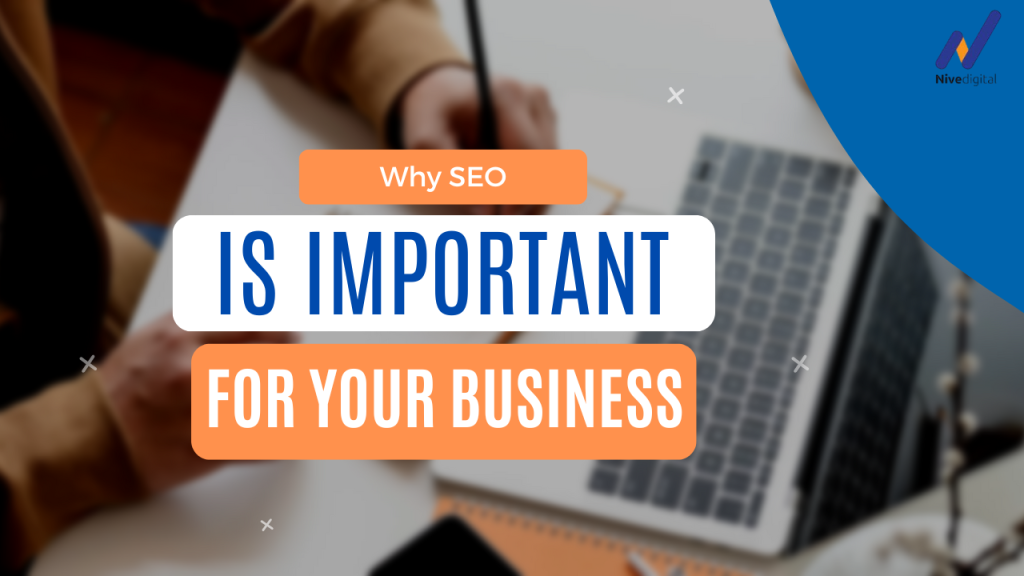
In today’s digital world, having a strong online presence is not just an option—it’s a necessity. People turn to search engines like Google every day to find products, services, and solutions to their problems. If your business is not showing up in these search results, you are losing potential customers to competitors who have optimized their online presence.
This is where Search Engine Optimization (SEO) comes in. SEO is the process of improving your website to rank higher on search engine results pages (SERPs). The higher your site ranks, the more people will find and visit it. Unlike paid advertising, which stops generating traffic when you stop paying, SEO provides long-term benefits by bringing in organic visitors consistently.
If you want your business to grow online, understanding and implementing SEO is essential. In this guide, we will break down why SEO is crucial, how it works, and how you can use it to improve your online visibility.
What Is SEO and How Does It Work?
SEO is about making your website easy for search engines to understand and attractive for users to visit. Search engines like Google use complex algorithms to determine which pages should appear at the top of search results. These algorithms consider hundreds of factors, but the main ones include:
- Relevance: How well your content matches the search query.
- Authority: How credible and trustworthy your site appears.
- User Experience: How easy your website is to navigate and interact with.
To optimize for these factors, businesses use SEO techniques, which can be divided into three main categories:
1. On-Page SEO
On-page SEO involves optimizing elements on your website to make it more search-engine-friendly. Key areas of focus include:
- Keywords: Using relevant keywords in your content, titles, and meta descriptions.
- Content Quality: Providing valuable, informative, and engaging content for users.
- Internal Linking: Connecting different pages of your website to help users navigate easily.
- Mobile Friendliness: Ensuring your website looks and works well on mobile devices.
- Page Speed: Making sure your website loads quickly to keep users engaged.
2. Off-Page SEO
Off-page SEO focuses on building your website’s reputation and authority through external factors. This includes:
- Backlinks: Earning links from other websites that direct traffic to yours, which signals credibility.
- Social Media Presence: Engaging with audiences on platforms like Facebook, Instagram, and LinkedIn.
- Guest Blogging: Writing content for other sites to gain exposure and link back to your website.
3. Technical SEO
Technical SEO ensures your website meets the technical requirements of search engines. Important aspects include:
- Website Security: Having an SSL certificate (HTTPS) for a secure browsing experience.
- Structured Data: Helping search engines understand your content through schema markup.
- Crawlability: Making sure search engines can index your pages easily.
By combining these three areas, businesses can create an SEO-friendly website that ranks well and attracts more visitors.
Why SEO Is Important for Your Business
Now that you understand what SEO is, let’s dive into why it matters. Here are the top reasons why SEO is essential for business success.
1. Increases Website Traffic
One of the biggest advantages of SEO is that it helps drive organic traffic to your website. When your website ranks higher on search engines, more people can find it. Unlike paid ads, which require ongoing investment, organic traffic from SEO is free and sustainable in the long run.
2. Builds Brand Credibility and Trust
People tend to trust websites that appear at the top of search results. If your website consistently ranks high, it signals to users that your business is reputable and authoritative. SEO helps build trust by ensuring your site provides valuable content, has strong backlinks, and offers a seamless user experience.
3. Improves User Experience
SEO is not just about search engines—it’s also about your audience. A well-optimized website provides a better experience for users. Fast loading speeds, easy navigation, and mobile responsiveness all contribute to a positive user experience. When users have a good experience, they are more likely to stay on your site, explore your content, and take action.
4. Helps You Stay Ahead of Competitors
If your competitors are investing in SEO and you are not, they are gaining an advantage over you. Ranking higher in search results means they are attracting more customers while you miss out on opportunities. By implementing a strong SEO strategy, you can compete effectively and even outrank your competition.
5. Supports Long-Term Business Growth
SEO is a long-term investment that keeps delivering results over time. While paid ads provide immediate visibility, their impact stops as soon as you stop running them. SEO, on the other hand, builds a strong foundation that continues to generate traffic, leads, and sales without ongoing ad spend.
6. Enhances Local Visibility
For businesses that serve a local audience, SEO is even more critical. Local SEO strategies, such as optimizing Google My Business listings, getting customer reviews, and using location-based keywords, help businesses show up in local searches. This means more foot traffic and more calls from nearby customers.
How to Implement an Effective SEO Strategy
Now that you understand why SEO is important, let’s discuss how you can implement it effectively.
1. Conduct Keyword Research
Keywords are the foundation of SEO. Start by identifying words and phrases that potential customers use when searching for businesses like yours. Tools like Google Keyword Planner and Ahrefs can help you find the right keywords to target.
2. Optimize Your Website Content
Once you have your keywords, incorporate them naturally into your content. Avoid keyword stuffing, as it can harm readability and rankings. Focus on creating high-quality content that answers users’ questions and provides real value.
3. Improve Your Website’s Technical Health
Ensure your website is technically sound by:
- Fixing broken links.
- Optimizing images for faster loading times.
- Using a mobile-friendly design.
- Implementing structured data markup.
4. Build High-Quality Backlinks
Earning links from authoritative websites improves your search rankings. Some ways to get backlinks include:
- Writing guest posts.
- Reaching out to influencers in your industry.
- Creating shareable content like infographics and research studies.
5. Leverage Local SEO Strategies
If you run a local business, optimize for local searches by:
- Creating a Google My Business profile.
- Encouraging customers to leave reviews.
- Including location-specific keywords in your content.
6. Monitor and Adjust Your Strategy
SEO is not a one-time task; it requires ongoing effort. Use tools like Google Analytics to track your traffic, keyword rankings, and user behavior. Regularly update your content and adjust your strategy based on performance data.
Conclusion
SEO is one of the most powerful tools businesses can use to increase online visibility, attract potential customers, and drive long-term success. By implementing a strong SEO strategy, businesses can improve their rankings, enhance user experience, and stay ahead of the competition.
If you haven’t started focusing on SEO yet, now is the time. The sooner you invest in SEO, the sooner you will start seeing results that will benefit your business for years to come.
FAQs About SEO
1. How long does it take to see results from SEO?
SEO is a long-term strategy. While some improvements can be seen in a few weeks, it typically takes 3 to 6 months to notice significant ranking changes.
2. Is SEO better than paid advertising?
SEO and paid ads serve different purposes. Paid ads provide instant traffic, while SEO builds sustainable organic traffic over time. A combination of both often works best.
3. Can small businesses benefit from SEO?
Yes, small businesses can greatly benefit from SEO. It levels the playing field by allowing them to compete with larger brands in search results without spending heavily on ads.
4. What happens if I ignore SEO?
If you ignore SEO, your competitors will outrank you, and you will miss out on valuable organic traffic. Over time, this can lead to fewer leads, sales, and business growth opportunities.

Article by:
Oyejobi Adeola, founder of NiveDigital & NiveDigital Academy, is a top expert in SEO and digital marketing.
With over a decade of experience, he has helped businesses grow through advanced SEO strategies and trained hundreds of students to succeed online.
His insights have been featured in top industry publications.


